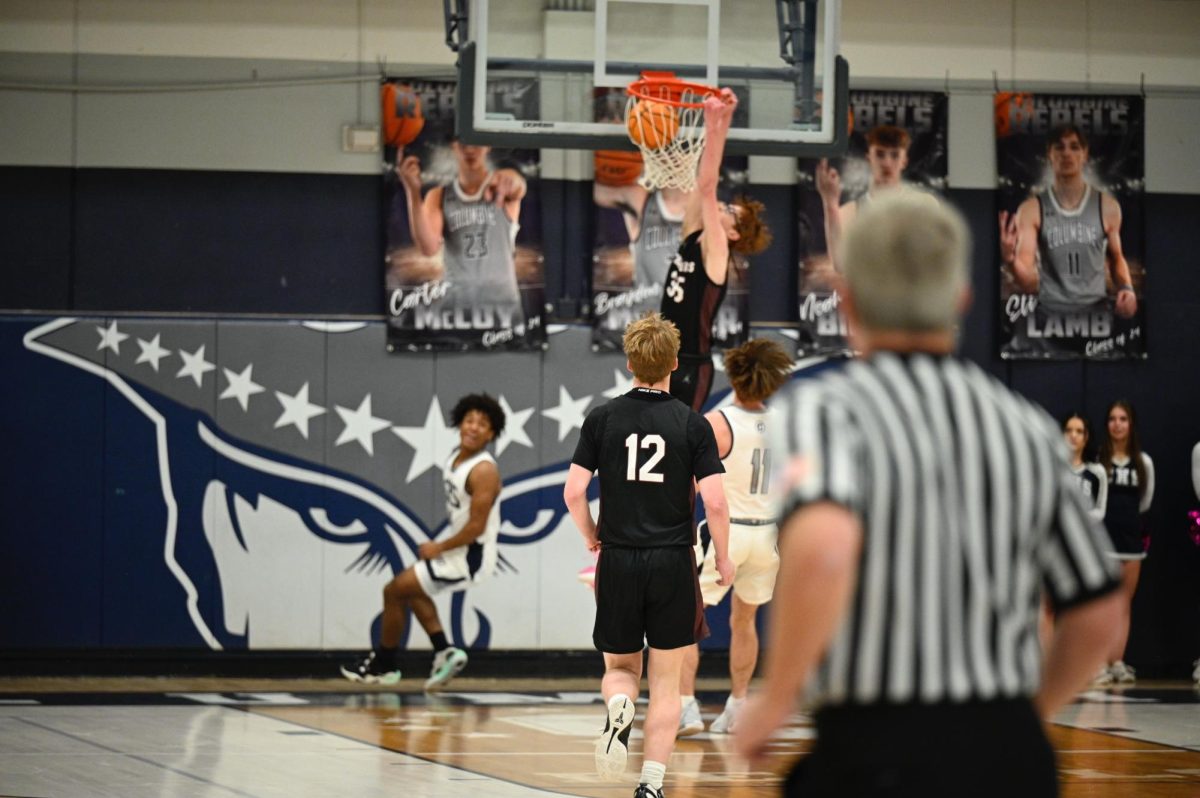On any given day, there is always one person who is experiencing one of the most important moments of their life. Whether it is an important job interview, a big test, or even the biggest decision of their life–whatever that may pertain– it brings upon a level of pressure to be great, but one of the most underrated pressures that anybody could come across is those being counted on in sports.
Sports have always been an important part of my life from a very early age as with many of my peers as well as an important part of American history, helping to unify all of us, whether we are playing the game or simply just watching. But when can society’s value of sports take a toll on how we see ourselves as individuals? Our mindset —as an athlete— can significantly influence how we value ourselves in sports. Alexa Deutsch, a senior at Chatfield, played volleyball her whole life until a recent ankle injury that would take her out of half of her senior season. Alexa said, “When you’re injured, and then you just have to sit and watch everyone else play, it’s draining. When my coach basically told me you can come, and you can hand me balls for the whole season and when you come back you might not even be able to play…is it worth all that?” Getting injured is one of the most painful moments an athlete can experience, but how one treats that injury can make all the difference. Sports to many is a peace of mind, and that value hits heavy when one is not able to play.
Additionally, the nonstop nature of a competitive sport can be too much sometimes, ultimately forcing an athlete to take a break for their well-being. After Andre Drummond told the press that he missed his game for mental reasons, the Associated Press from ESPN responded fast. Bulls coach, Billy Donovan spoke out saying, “As we come here and play games there’s also a human side, a personal side to all these guys”. Another Bulls star, DeMar DeRozan, who has been open about his own battle with depression and mental health issues, said he plans to give Drummond his space while also letting him know that he is there for him (Associated Press). Not only are professional sports difficult to get to, but they are heavily draining and can affect mental health. On a smaller scale, one of our volleyball players presents her battles with the sport she used to love;“ I didn’t want to quit it, I’ve done it my whole life, yet I have never been more drained I’ve never cried more, and I’ve never failed so many classes” I asked her, “Why is that?” and she responded, “It’s too much”. Athletes should recognize that they are not alone if they are struggling with mental health, and it is important to speak up. Sometimes the extreme value of sports can cause us to lose track of ourselves.
Despite the negative effects of pressure and the pressure from coaches, peers, and your own self, there are also positive effects to the pressure added onto sports. Sixers head coach, Doc Rivers, recognizes that “There’s always pressure… If you set a high goal for yourself, there’s not a person alive that can say there’s no pressure to that” but his advice would be to: “Embrace it. Like this is a good thing. When you’re on a team that is in the playoffs, and when you’re on a team that has a chance to go forward, there’s pressure to that, and there should be. We have to accept that” (Sports Illustrated). The head coach emphasizes that pressure on athletes is inevitable, but advocates that it does not always have to be a bad thing. Our very own quarterback from Chatfield, Jake Jones, had a different spin on the way he responds to the pressure he endures: “I embrace the pressure and take it as a challenge to help motivate me to be better at what I’m trying to achieve”. Ultimately, understanding that pressure is real and exists, but can be used to fuel achievement rather than stunt it.

A psychiatrist, who specializes in sports, discusses how amazing it is to watch how people perform under pressure. The Neuropsychology of Performance Under Pressure | Dr Philip Hopley | TEDxMoorgate, In this Ted Talk, Hopley begins by describing reliant and resilient players, who he never could understand how they could be so consistent with the elements of pressure they face. While many coaches and teams, after a loss, say it was a “shared responsibility” that meant nothing to him. He then realized that those who turn pressure into an opportunity have a level of focus and poise, being absolutely in the zone. “They are so focused and so in the zone that they were able to perfectly focus on what they needed to do. Perfect state to win the match.” His final advice was to “Think about a positive previous experience, visualize doing something good in the game, and project your thoughts forward to what it feels like after the game. Focus on that, and that reduces the intensity of the anxiety”. This is how the pressure of sports can be contained mentally.
Overall, the value and pressure in sports is one of the most difficult for an athlete to endure. No matter how you are put on the pedestal, such as the pressure of coming back from an injury, or the value of battling mental health from the sport one used to love, and even embracing the pressure to achieve success; it is important to adopt a growth mindset in order to not get down on yourself. With focusing on certain tactics such as visualizing, thinking positive, and projecting your thoughts forward to reduce stress and the value you put on the pressure. As humans, we have the ability to lock up stress and take it wherever we go, so it is important to not be so hard on ourselves and recognize that the value in sports is all how you interpret it, and it’s important to stay positive to maximize your success even under extreme pressures.









Jeff Storm • Dec 27, 2023 at 9:42 PM
Lots of great content and insight here, good read!